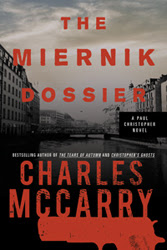 Downton Abbey (which I’m discussing elsewhere so as not to put spoilers in Jane’s path) got me thinking about the man behind the curtain (or the woman, as the case may be)—the writer. My frustrations with that show have to do mostly with the way the writing is sometimes so very visible. Much of the conversation I’ve seen around the web today, including in my own post, questions decisions made by Julian Fellowes. In a way, he’s as much a character in the series as anyone on camera. We’re always aware of his fingers on the keys—this well-turned quip, that infuriating plot twist, this theme stated baldly and repeatedly by numerous characters until we feel bludgeoned by it.
Downton Abbey (which I’m discussing elsewhere so as not to put spoilers in Jane’s path) got me thinking about the man behind the curtain (or the woman, as the case may be)—the writer. My frustrations with that show have to do mostly with the way the writing is sometimes so very visible. Much of the conversation I’ve seen around the web today, including in my own post, questions decisions made by Julian Fellowes. In a way, he’s as much a character in the series as anyone on camera. We’re always aware of his fingers on the keys—this well-turned quip, that infuriating plot twist, this theme stated baldly and repeatedly by numerous characters until we feel bludgeoned by it.
It’s unusual, and therefore interesting, to see a show of this calibre (clearly there is something above-the-pack about Downton that keeps us all panting for the next episode, and has so many of us talking talking talking week after week) fail on a suspension-of-disbelief level with such regularity. We’re constantly thinking about the writing, and therefore the writer. This is seldom the case with other fine shows I’ve been hooked on. Mad Men, for example—I hardly ever think about the writing while I’m watching it. Afterward, yes, generally with admiration, always with fascination.
The Wire: I don’t believe I ever once considered the people behind the curtain during the entire run of that show. I was pulled so thoroughly into the world that it became absolutely real. Sometimes I’ll see one of the actors in another role and get a jolt: but I thought you were still walking a beat in Baltimore!
LOST is an example of an excellent show which nevertheless featured The Writing as a supporting character. Indeed, there were entire seasons when I was pretty sure the writers had no idea where certain strands were going, and sometimes The Writing seemed to wander off into the jungle and be eaten by a polar bear. (I mean, that whole thing with ghostly Walt popping up now and then, after he’d been returned to the mainland—did they ever explain that? I have the feeling the young actor grew up too much over a hiatus and they had to just let the plotline fizzle away—which would be an event outside the story affecting the storyline.)
And yet I loved LOST (and still miss it), just as I have loved Downton, despite the enormous footprints The Writing leaves all over the house. (The poor housemaids, always having to clean up after it—and then it repays them by giving them the sack, or throwing their husbands in jail.)
The Downton incident that so many of us are bemoaning today is a particularly egregious case of The Writing leaping in front of the camera and announcing it’s ready for its close-up, Mr. DeMille. An off-camera, real-world decision by an actor seems to have annoyed The Writing, possibly outraged it, and it rummaged through the cupboard until it found a rusty old overused implement and flung it through the fourth wall.
As a writer myself, I like to ponder the people behind the curtain—after the fact. When the show’s over and I’ve emerged from its world, that’s when I like to imagine the discussions in the writers’ room or trace the artful seed-planting that bears delicious fruit somewhere down the line. Arrested Development is one of the best examples ever of a show whose writers are so perfectly invisible that I never think of them at all during an episode—and then afterwards, or four episodes later, or on the seventh viewing, I’ll find myself marveling at their skill, their cleverness, their patience (allowing a joke to bide its time and blossom half a season later). That’s a show in which the writers are never onstage, but upon recollection I’ll wish I could have been a fly on the wall when they came up with some of their bits. What I wouldn’t give for a YouTube clip of the day they came up with Bob Loblaw! Who thought up that name? (If you don’t know what I’m talking about, click the link; you have to hear it spoken aloud.) Did the rest of the team all fall out of their chairs laughing when one of them uttered it for the first time? Were they able to get any work done for the rest of the day or was it overthrown by helpless giggles?
The internet, of course, puts us all in closer contact with the creators of our books, television shows, films, and music. Many of you probably know me better than you know my books. And if you’ve read my blog for a while, it may be hard to approach my books without thinking of me, the writer, on the other side of the page. At least, that’s how it is for me when I open books written by people I know, either in person or online.
Sometimes this familiarity works in the writer’s favor, and sometimes it hinders full enjoyment of the work. Returning to LOST, for example: much as I loved that show, much as I hung on every next episode, I had an uneasiness in the back of my mind the whole time, because early on I’d seen a TED talk by J.J. Abrams, in which he told a story about buying a mystery box at a magic store as a kid—a box marked only with a question mark, so that you didn’t know what was inside until you took it home and opened it. He never opened his. He displayed it right there during his talk, still sealed up decades later. It held more meaning for him as a possibility, a mystery; he’d kept it as a talisman all those years, a symbol of the joy of the unknown. I listened to him describe this—it was early in Season 2, I think—and I thought, Ohhhh NO, he likes unanswered riddles. LOST had us up to our ears in unanswered riddles, and by golly I wanted answers; but knowing what I knew about one of the most powerful people behind that particular curtain, I no longer had confidence answers would be provided.
(And yet I dove eagerly into that quicksand pit of riddles week after week.)
With novels, it seems generally easier to tuck the writer back behind the curtain and forget about him or her. Not always, but usually, if the story is well told. This is probably because there are fewer variables; your novel’s characters can’t quit on you, or send unfortunate tweets, or be arrested for drunk driving. It’s only when a book has plot holes or something clunks that I’m back to thinking about the person behind the page. Sometimes it’ll even be the editor who draws my focus; I’m thinking: Why didn’t you catch that? This story didn’t start until chapter three, and it’s your job to break that news to the writer.
(Perhaps I think this because I’ve had the good fortune of working with truly excellent editors who perceive all things visible and invisible.)
It’s a strange age we live in. What I want as a writer is to be invisible on the page; I don’t want the reader thinking about me at all. I believe that if I’m doing my job right, you’ll have forgotten about me within a few paragraphs—or perhaps a few pages, if you know me with some degree of familiarity. And yet, as an author (i.e. writer of published books), I’m aware that my publishers expect, and my books’ survival may in part depend on, various kinds of visibility. And then I’m also a blogger, eight years in love with the form—a medium which is all about person-to-person sharing, and which sometimes brings me more direct satisfaction than my books.
(Am I allowed to admit that? It’s true, though. Most writers I know go on being critical of their own work long after it’s been published. Not to mention the blunt reality of things sometimes going out of print.)
So our various selves are all intertwined, these days: the reader, the writer, the viewer, the performer. I’m reading your novel on one screen and chatting about your hellish commute on another. I’m watching your movie and thinking about that perplexing remark you made in a blog post. I’m head over heels in love with your television show—and desperately wishing you’d written yourself out of this particular script.
Which I suppose is where my point is. I don’t mind the intertwined identities; in fact, I rather enjoy them, as long as they don’t affect the work. The more I respect your talent and skill, the less I want to think about you while I’m enjoying your art. I’ll eagerly go and hear you speak about it later—that’s a joy, hearing creative people discuss their work. But I don’t want to be in a writing workshop with every single creator I encounter. I don’t want to think about your writerly choices, and what drives them, not in the moment, not while I’m immersed in your work. Give me invisible craft. Let me believe, just for this hour, that there are no puppet strings, no hands pulling them. Let me believe there’s no one there behind that curtain—let me forget the curtain exists at all.
Add a Comment




 2 Comments on The Cure for Depression is MADATL, last added: 7/31/2012
2 Comments on The Cure for Depression is MADATL, last added: 7/31/2012
“Although I’m not a proponent of mindless TV watching, sometimes I must admit, it helps, especially when you’re scared to leave the house or when you have trouble getting dressed without breaking down into tears” — I feel your pain. Reading those last 2 lines hits so close to home. Loved the post. Thanks for the suggestions. I’ve been locked up in my house doing the same thing, except I’ve chosen things like Breaking Bad, RuPaul’s Drag Race, and random documentaries, you know, so my mind doesn’t turn to slush. & surprisingly RuPaul’s Drag Race turned out to be VERY entertaining.
Oh my gosh, I LOVE RuPaul’s Drag Race haha!!! My brother-in-law got me hooked. Hang in there. I keep telling myself to just keep going, one step at a time, and it will get better